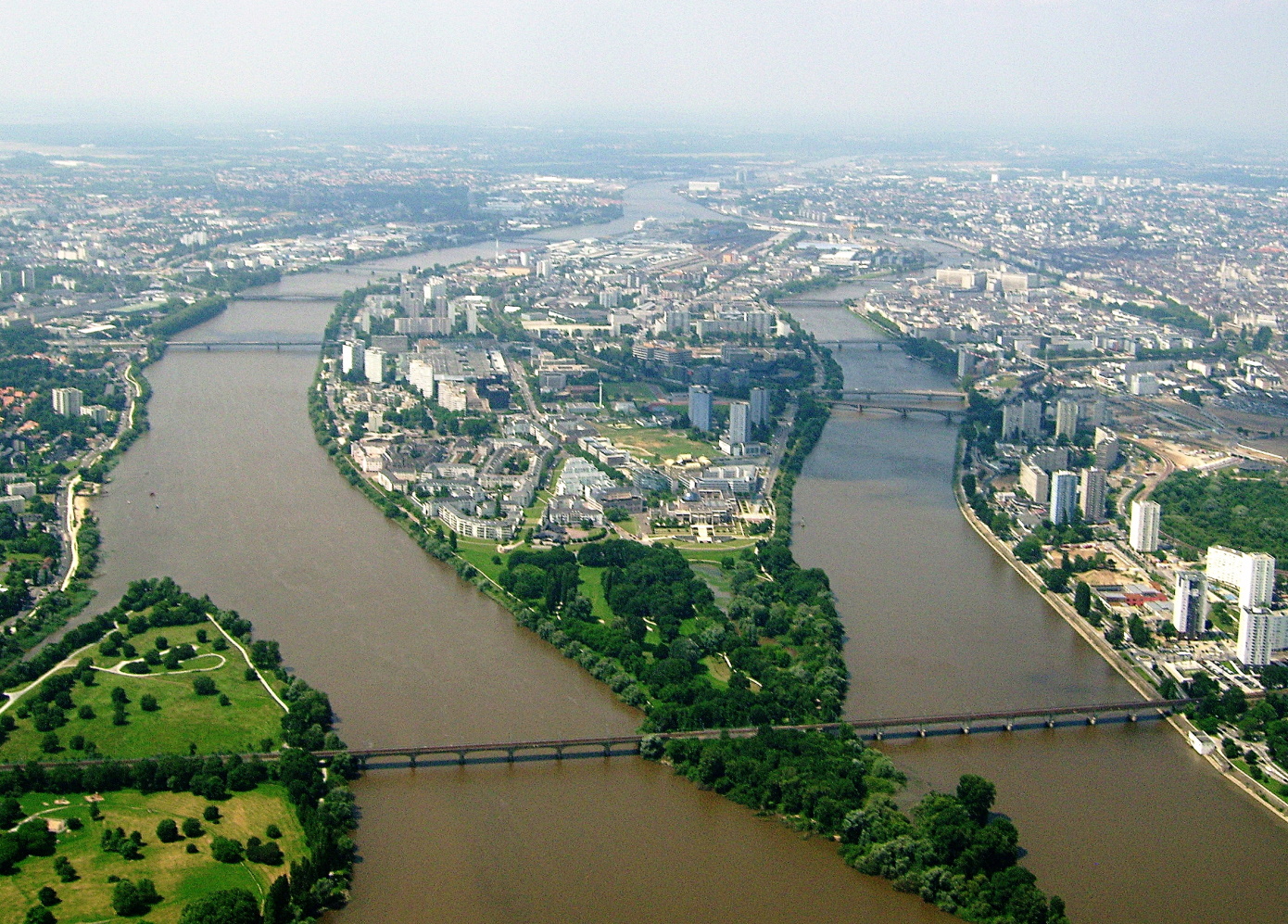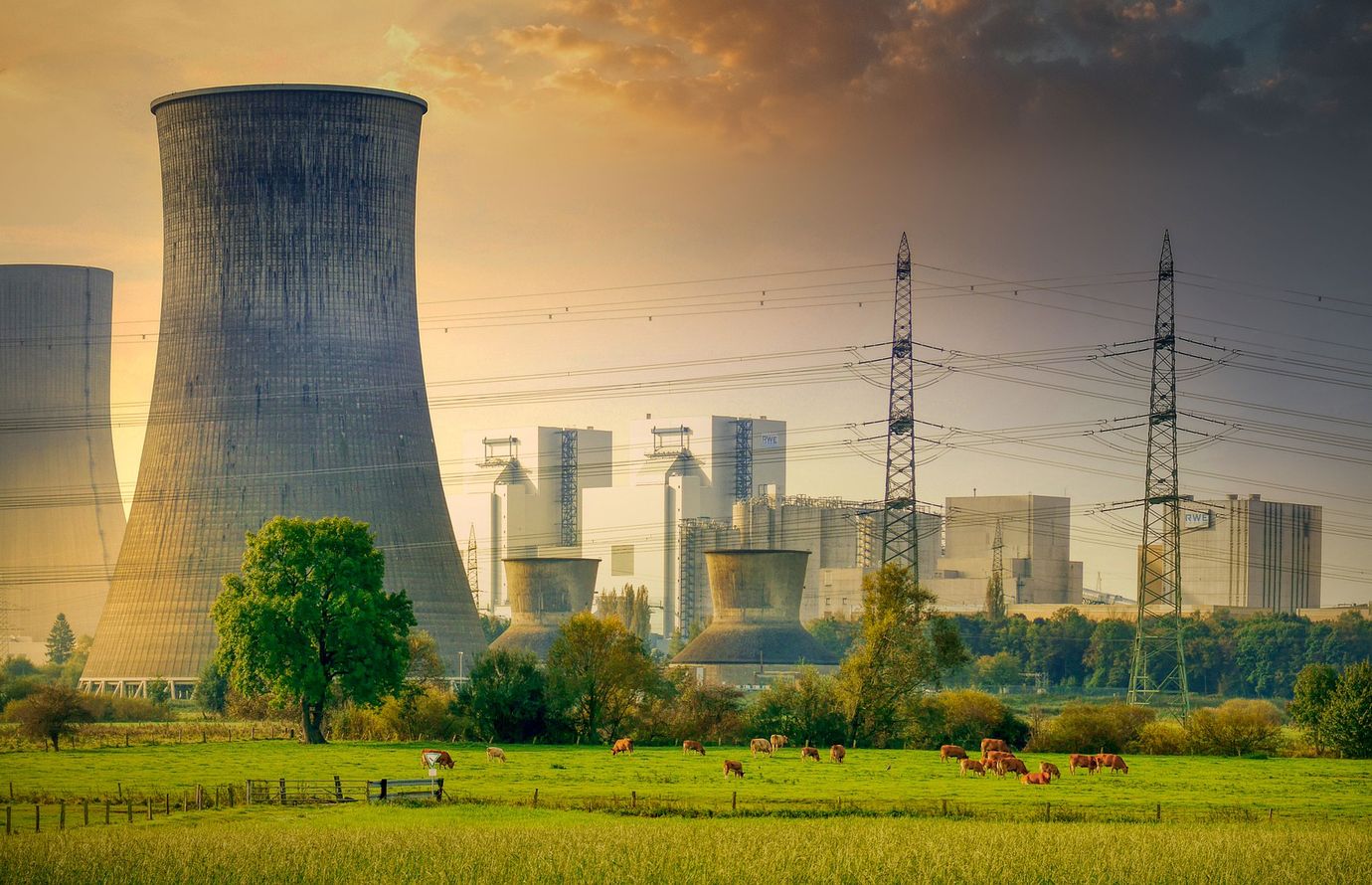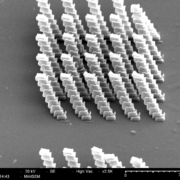DENV-R, a data center on water
By continuously ensuring the seamless operation of the digital chain, data centers give off a considerable amount of heat and require additional energy to power their cooling systems. DENV-R, a start-up incubated at IMT Atlantique and present at VivaTech 2023, proposes a floating data center solution that uses water to cool itself, minimizing its impact on land and the environment.
As the cornerstones of an “all-digital” world marked by the ever-growing use of digital technology, data centers must now be infallible. Yet, this infrastructure requires huge amounts of energy to continuously ensure both the operation of the equipment they house (computers, servers, storage systems etc.) and their cooling systems. Additional energy is required to cool the heat generated by the equipment through the Joule effect, usually to power air conditioning systems that are energy-intensive and polluting.
This contradiction led to the founding of DENV-R, a start-up incubated on the Nantes campus of IMT Atlantique. The company proposes a new floating data center model, combining optimized cloud computing service (providing computing power, storage and network) with a responsible, sustainable approach to design and operation. Located on the water, its infrastructure uses a patented technology to cool its servers in a non-invasive way – keeping data cool and reducing its environmental impact.
A proposal endorsed by REEN
DENV-R therefore responds to one of the key challenges of the law to reduce the environmental footprint of digital technology (REEN), whose aims include promoting less energy-intensive data centers. Since it was published in 2021, the REEN law has provided digital players with a roadmap for reducing their carbon footprint.
“Six years ago, when the project was started, digital technology was already a very mature sector, but it was not subject to any requirements in terms of accountability or sustainability!” says Vincent Le Breton, co-founder and CEO of the start-up. “Now, thanks to the REEN law, an initiative like DENV-R attracts the attention of public authorities.” The start-up stands out for its holistic approach, focusing not just on energy aspects, but on the entire value chain that makes up a data center.
Benefits derived from water
“A number of reasons led us to set up a data center on the water,” says Le Breton. “One was the many constraints related to population density on land.” By locating its data center on rivers, DENV-R can deploy infrastructure at the local level without impacting the land. The project is thus in keeping with the “blue economy” movement, which refers to sustainable opportunities provided by oceans and seas, or in this case, rivers, in response to densely populated land.
Read more on I’MTech: Data centers: when digital technology transforms a city
The floating data center comes with a certificate of seaworthiness allowing it to be moved at will. “We designed it to be a flexible solution that evolves along with its environment,” explains the young CEO. “The building has a concession for a given period of time. After this period, if local authorities wish to recover the space, the building can change its location.” This mobility is facilitated by the low level of civil engineering required: all the structure requires to “moor” and operate is a connection to the fiber optic and electrical networks.
The floating platform also offers a way to sidestep weight constraints. For the same amount of IT equipment, the hosting area can be divided by ten compared to the area needed on land, which requires a concrete slab and raises questions about soil artificialization. However, the greater the equipment density, the more heat is produced and the more difficult it is to cool with air. This is the advantage of using water, since it acts as a much more effective heat spreader than air.
A patented cooling system
In France, the legislation is currently rather permissive in this area: many thermal power plants pump water from rivers for their cooling systems. Even though the temperature of the water discharged at the end of the process must not exceed a regulatory threshold so as not to disturb aquatic ecosystems, DENV-R favors a more “natural” approach. “We didn’t want to be invasive or have to re-examine the impact of our model and how it fits into its environment a few years down the line,” explains Le Breton.
This is where the start-up’s patented technology comes into play. The heat exchanger users the river flow to directly cool hot spots (processors and graphics cards), without pumping water, and with a minimum impact on river warming. For the DENV-R data center, which has an energy capacity of between 100and 200 kW, the rise in water temperature around the structure is estimated at 0.003 degrees.
Local manufacturing and use
“With this level of impact, we could provide more power, but what we’re most interested in is resilience, by prioritizing a network of low-impact structures,” explains Le Breton. “That’s why we’re working on an edge computing model,” meaning as close to the data source as possible.
DENV-R aims to propose local data centers, minimizing heat production by using buildings that are smaller than centralized data centers — which require a great amount of energy and create heat islands in cities. This is an additional parameter that must be taken into account, since summer heat waves now occur on a yearly basis.
The start-up is also making local manufacturing a priority: the structure was co-designed with GEPS Techno, a Guérande-based design office specialized in floating solutions for energy production. The building, which consists of a platform on two floaters, is built in a local shipyard.
Vincent Le Breton has not ruled out the possibility of further developing this local model to create a larger-scale facility, located offshore. “That would require further reflection about the size of the building, its connection, and waves, but those are understandable constraints for a larger-scale configuration.” In the meantime, DENV-R’s first floating data center is expected to be put into service in September 2023 on the Loire River, in Nantes.
Ingrid Colleau.













Leave a Reply
Want to join the discussion?Feel free to contribute!